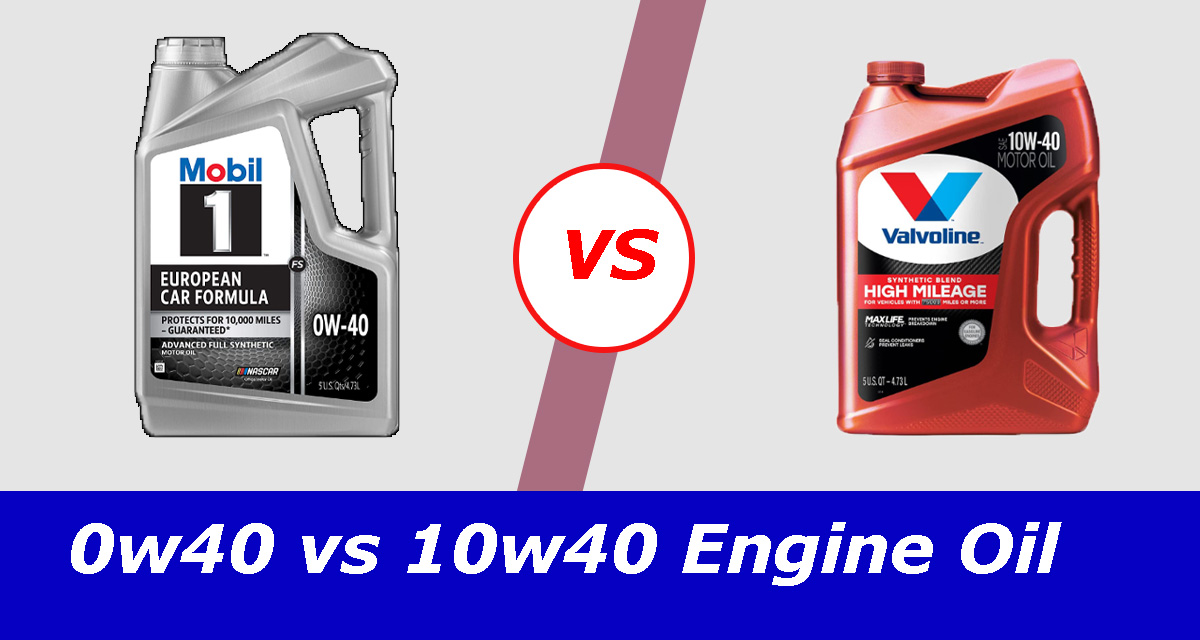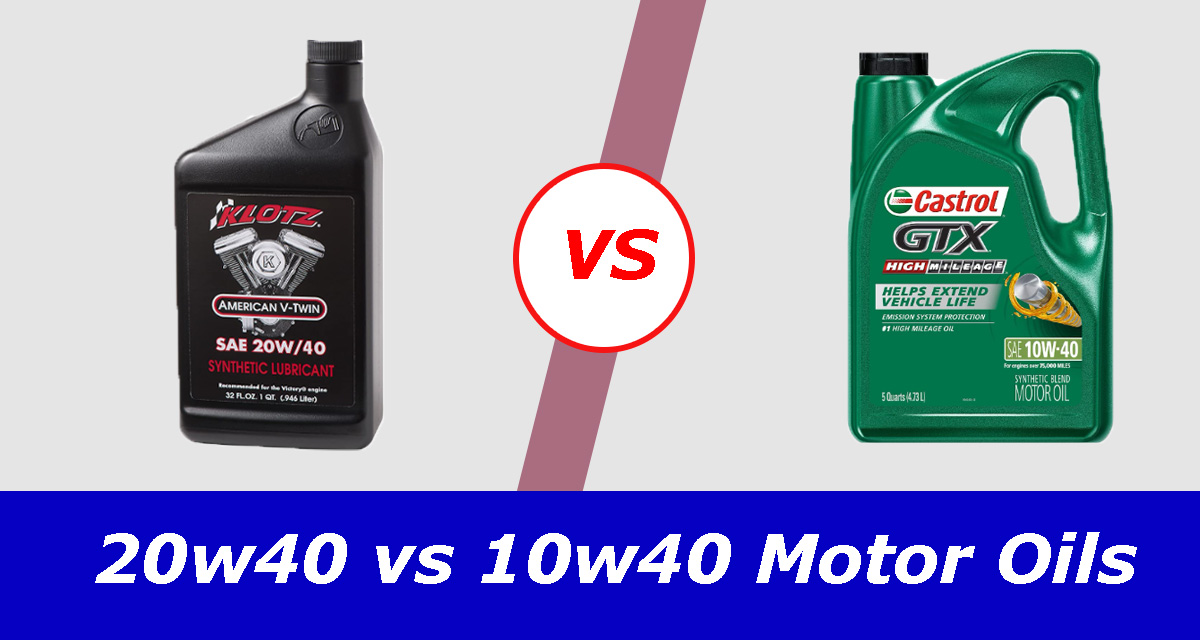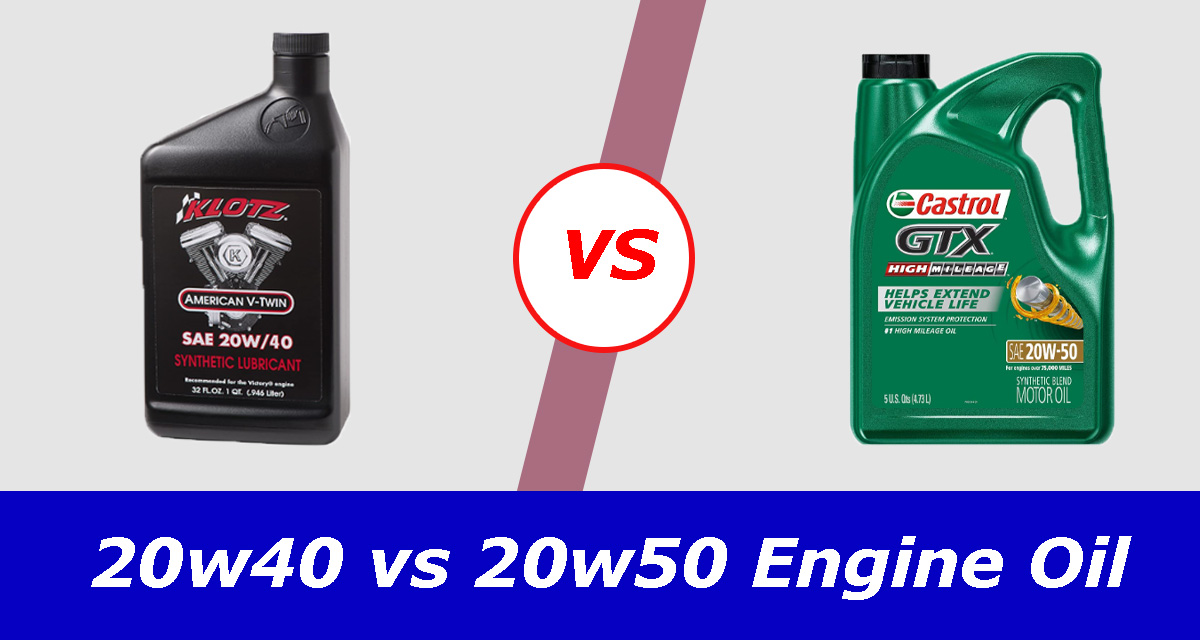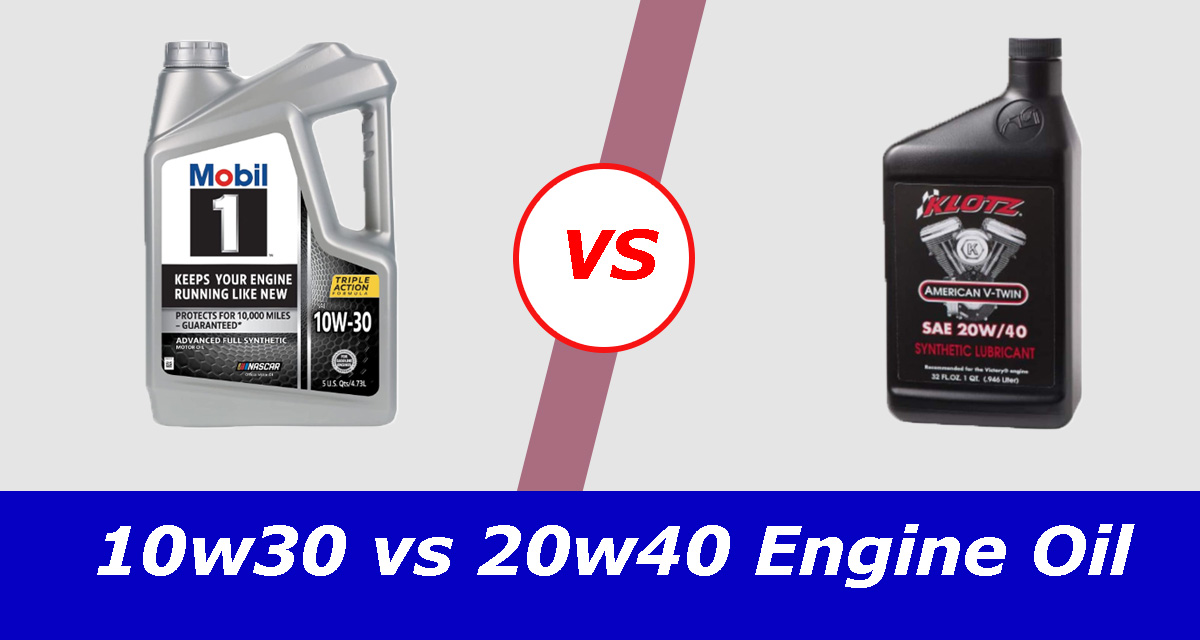Vehicles are a significant part of our modern lifestyle. Undoubtedly, these amazing innovations have made our lives much more comfortable as well as accessible.
While making our life easier, faster, and more comfortable, a vehicle also needs to have some proper maintenance in order to retain its performance. And when it comes to the maintenance of your vehicle’s engine, the engine oil plays a big role.
Engine oils or motor oils serve as a lubricant for a vehicle’s engine. It helps to prevent the vehicle’s parts from stocking. However, with a diverse range of engine oils available in the market, it is really tough for one to decide the best option for a vehicle.
To help you understand a bit more about the characteristics and diversity of different oils, here we are going to compare 0w40 and 10w40 engine oil. Join us if you really want to ensure the best health for your car.
0W40 vs 10W40: Head-to-Head Comparison
Before we get into the detailed discussions, here is a brief head-to-head comparison between 0W40 and 10W40. To understand the basic differences between them, let’s have a look at the table below:
| Attributes | 0W40 | 10W40 |
| Viscocity (Low Temperature) | Thinner | Thicker |
| Viscocity (High Temperature) | Same | Same |
| Efficiency (Under 100°C) | Higher | Lower |
| Efficiency (100°C-150°C) | Similar | Similar |
| Oil Consumption | More | Less |
Now that we know the basic characteristics of these two engine oils, let’s get to know their differences in detail!
Key Differences between 0w40 and 10w40 engine oil
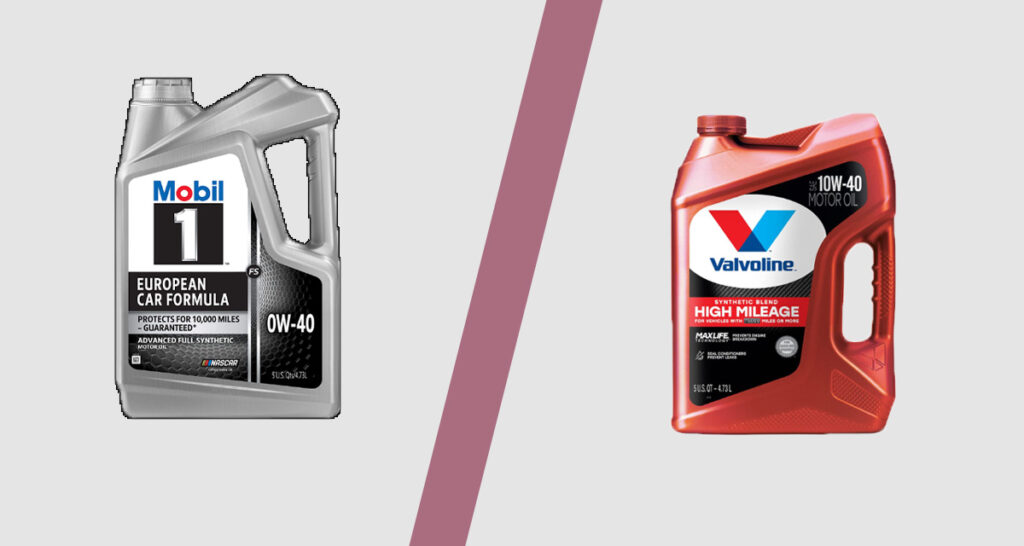
Viscosity
The simplest interpretation of viscosity is the “thickness” of a liquid. For instance, honey is much thicker compared to water, and so it possesses a higher viscosity rating.
A fluid having higher viscosity resists motion more compared to a fluid having lesser viscosity. More viscosity means a lesser ability to flow. Since honey has a higher viscosity, it’s more difficult to move fingers through honey compared to water.
The main purpose of an engine oil is to prevent wear and tears in the engine parts. Engine oil with higher viscosity indicates that the oil is thicker and the friction between the engine parts would be lesser using less motor oil.
However, such a situation is mainly applicable during high-temperature conditions. When the temperature is low instead, you should use a thin oil. It assures that the vehicle would not need to exert too much effort to operate the engine. Also, putting a thicker engine oil during cold weather can make your vehicle suffer.
Hence, 0w40 and 10w40 both can function in cold weather, but 10w40 works better in higher temperatures.
Oil Grade
The oil grade is used as a standard to identify a particular category of engine oil. The viscosity of the oil is followed to assign the grade to an oil. The “0W” designation in the 0W40 oil expresses its ability to endure extremely low temperatures.
While 0w40 and 10w40 both behave in the same way in cold weather, the performance differs in hot weather. In hot weather conditions, 0W40 oils would be more appropriate to use compared to 10W40 oils.
Fuel Economy
0W40 oils can be a good option to use in cold weather, as they can adapt better in cold conditions compared to 10W40 engine oils.
However, 10w40 engine oils are the finest solutions in hot conditions. Not only do they provide a significant kickback to the car but also help to save a good amount of money on the gas.
Hot Weather
All types of engine oils have specific temperature ranges, across which the oils provide optimal performance. In pumping temperatures, 0W oils can take the temperature down to -35 degree Celsius.
In 10w motor oils, it has a minimum of 9.3 and 12.5 and a maximum of 16.3 respectively. When the temperature is hotter outside, 0w40 would be the best motor oil to go for.
Price
0W40 engine oils are more affordable compared to 10W40 oils. However, both of the oils are more or less affordable in spite of the slight price difference, so the price is not something to worry much about when you get to choose between the two.
Can you use 0w40 instead of 10w40?
Yes, one can use a 0W40 oil instead of a 10W40 oil as both of them have the same viscosity level in an operating temperature. However, 0W40 oils will show a better performance in cold weather conditions. Before making the final decision, you should consider checking the vehicle’s manufacturer.
0w40 vs 10w40 FAQs
Is 10W-40 better than 0W-40?
It is always better to go for a thinner oil like 0W30, as it reaches the engine components faster, even in the winter. On the other hand, 10W40 is a better option in case of oil consumption.
10W40 is better in the case of oil consumption. However, it is always better to use the recommended oil from your car manual.
Is 0W-40 good for summer?
0W40 oils are well suited for extreme temperatures. Both in hot and cold temperatures, they can offer excellent performance. This means you can use 0W40 engine oil during the summer without any hesitation at all!
Can you mix 0W40 with 10W40?
It is okay to mix a 0W40 engine oil with a 10W40 engine oil. However, it is better to have some expertise on it or do some basic research before you get to do so. Just a bit of google research would bring you the few things you need to know!
The Final Verdict
Engine oils are important to ensure optimum performance for your vehicle for a long time. Though there are hundreds of options in the market, you should always go for the most appropriate one! Wondering how to find that out? The easiest way would be to follow the owner’s manual.
Both 0W40 and 10W40 motor oils can meet your vehicle’s needs. Though they have slight differences, they serve almost the same purpose. While both perform great in hot weather, 0W40 oils would perform a bit better in extremely cold temperatures.

